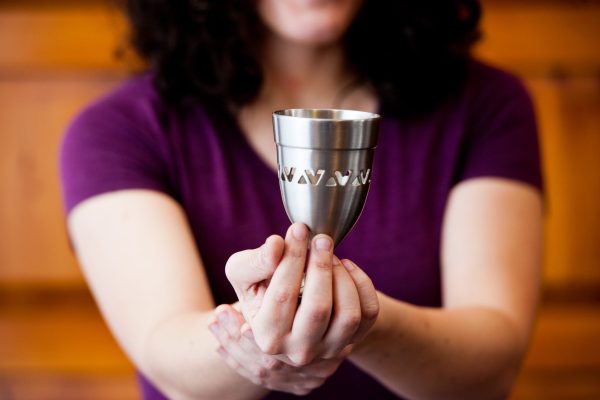Around our tables sit four daughters.
The wise daughter understands that not everything is as it appears.
She is the one who steps forward, assuming her opinion counts. She is the one who can take the tradition and ritual that is placed before her, turn it over and over, and find personal meaning in it. She is the one who can find the secrets in the empty spaces between the letters of the Torah.
She is the one who claims a place even if the men forget her.
Some call her wise and accepting. We call her creative and assertive. We welcome all assertiveness to sit with us at our tables and inspire us to act.
The wicked daughter is the one who dares to challenge the simplistic answers she has been given.
She is the one who asks too many questions. She is the one not content to remain in her prescribed place. She is the one who breaks the mold. She is the one who frightens the status quo.
Some call her wicked and rebellious. We call her daring and revolutionary. We welcome rebellion to sit with us at our tables and make us uneasy.
The simple daughter is the one who accepts what she is given without asking for more.
She is the one who trusts easily and believes what she is told. She is the one who prefers waiting and watching over seeking and acting. She is the one who believes that the redemption from Egypt was the final act of freedom. She is the one who follows in the wake of others.
Some call her simple and naive. We call her the one whose eyes wait to be opened. We welcome the contented one to sit with us at our tables and appreciate what may yet be.
Last is the daughter who does not know how to ask.
She is one who obeys and does not question. She is the one who has accepted men’s definitions of the world. She is the one who has not found her own voice. She is the one who is invisible.
Some call her subservient or oppressed. We call her sister. We welcome the silent one to sit with us at our tables and begin by experiencing the community of women.
Around our tables sit four daughters.
From Lichvod Pesach: A Women’s Community Seder Haggadah by Sylvia Schatz, Avi Z. Rosenzweig, Sherry Hahn, Rabbi Debra R. Hachen, Gloria Z. Greenfield, Temple Emunah, Lexington, MA, April 9, 2000. Used with the permission of Gloria Greenfield.












